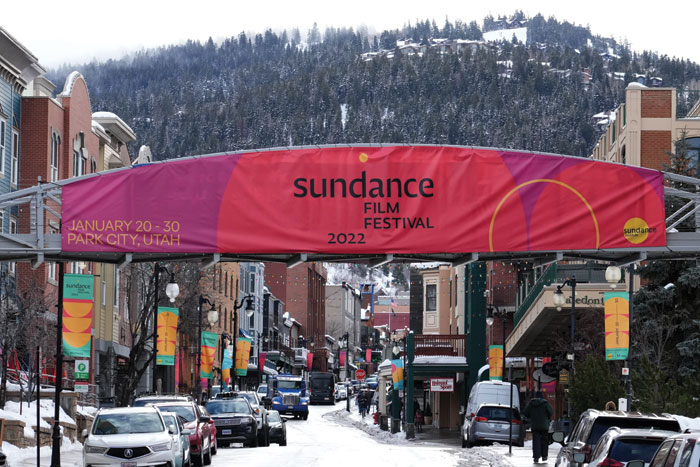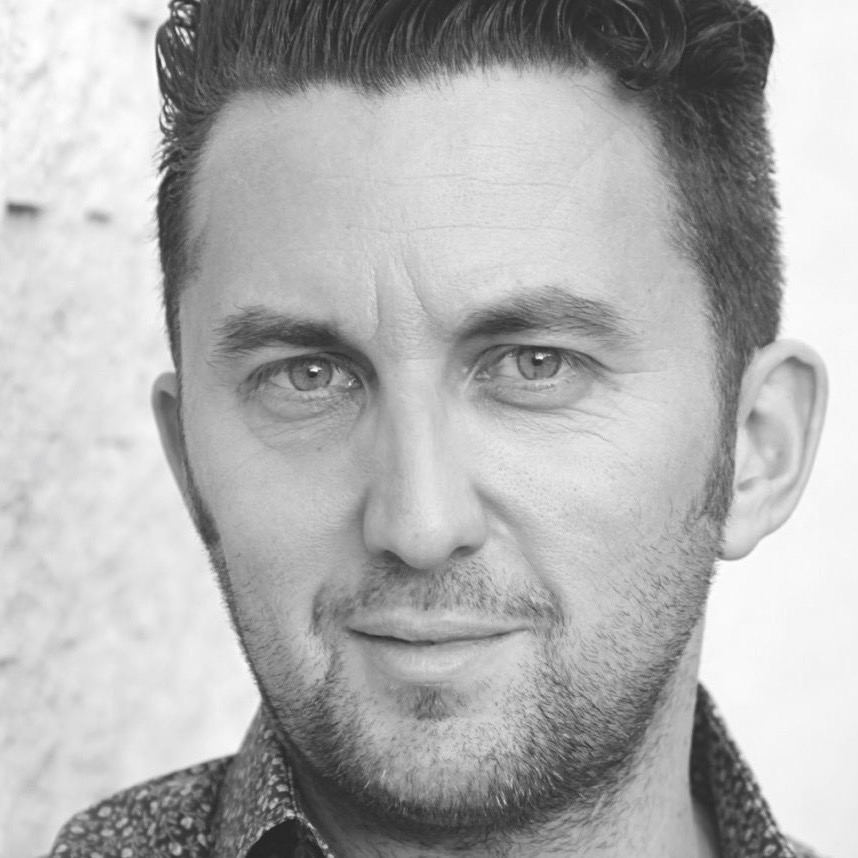 George Frey/Getty Images
George Frey/Getty Images Going to Sundance is a rite of passage for many Los Angeles filmmakers. All you need is a warm jacket for the freezing temperatures of Park City, Utah, a stylish hat, and a love of film. Sundance can be expensive, so it also helps if your winter coat has deep pocketfuls of disposable income.
It occurred to me that one thing missing from the well-established program is a place for Jewish filmmakers to network, and to support one another in making independent films. I set up a brunch event, and called it the “Jewish Filmmakers Network.” Although a friend of mine said, “the Jewish Filmmakers Network — isn’t that Hollywood?”
The last decade has seen a regular Jewish presence at Sundance. In 2009, a Sundance Shabbat dinner was created by Rabbi Mendel Schwartz of LA’s Chai Center. The event is now called Shabbat Lounge, and is produced by Shabbat Tent, led by Rabbi Yonah and Rachel Bookstein, who stage it in partnership with the Chai Center and the United Jewish Federation of Utah.
Shabbat Tent is a regular fixture at music festivals such as Coachella, and the Jewish space is subtitled as “Oasis of Chill.” The Shabbat Lounge at Sundance is a great space for hot food, and a toasty Jewish escape from Utah’s sub-zero chill.
Hundreds of people attended Shabbat Lounge programs during the weekend, and my event was the finale. I was hoping we’d get 40 people since that was all that the space allowed, but in the end we had standing room only, with people on the balcony and stairs, all cramming in to be part of the conversation. We had bagels flown in from New York, so even if they didn’t get a chair, at least they got lox and cream cheese.
I’m part of an independent film network called We Make Movies, and I wanted to bring the ethos to start a community of independent Jewish filmmakers. The approach of We Make Movies is to help you “make the movie you want to see,” without waiting for the coveted green-light that the film industry bestows on a few lucky people. Every summer we hold the We Make Movies International Film Festival, and recently ran a contest to give away three grants of $25,000 to help people make their films.
At the Jewish Filmmakers Network brunch, we staged a mini-pitchfest, with the aim of encouraging collaborations between attendees. One of the We Make Movies values is “helping the community is helping yourself.” In the great Jewish tradition of matchmaking, there were artistic shidduchs to be made.
One aim for the Jewish Filmmakers Network is to create a community where we can pool resources, and help each other create our films. Sundance Festival was a great place to launch the initiative, and Shabbat Lounge was the perfect host.
One aim for the Jewish Filmmakers Network is to create a community where we can pool resources, and help each other create our films. Sundance Festival was a great place to launch the initiative, and Shabbat Lounge was the perfect host.
I invited participants to introduce themselves to the group, introduce their film project, and ask for what they want. If someone has the solution to somebody else’s problem, then we all benefit because it increases the chances of the movie getting made.
The first person to stand up was a non-Jewish Black gentleman who asked, “How can I be an ally to Jewish filmmakers?” One person responded that “by being here and asking the question, you are already a great ally.”
A female filmmaker was looking for funding for a film about abortion, based on personal experience. An actress-producer was looking to connect with other Jewish filmmakers. An Israeli director wanted feedback on a project about the adventures of a cursed underwater rabbi, a kind of “Fiddler on the Roof meets Aquaman.”
Another filmmaker was looking to access an unaffordable location for his independent movie. I asked the crowd if there were any directors of photography or camera operators among them, and invited the filmmaker to speak with them afterward to get advice on creative ways to get the shot he wanted on a minimal budget.
It can be challenging for artists who have spent many years learning their craft but never achieved that big break. Many people drop out along the way, and as one of my drama school teachers put it, it is a “war of attrition.” The majority of people move on to more conventional lifestyles, and leave the dream behind, but what can you do if the dream still holds on to you? The easy answer is: Create your own opportunities, and hire yourself.
The cost of filmmaking is lower than ever before, and our focus is to create art without excuses. At the start of my acting career, I decided to write and produce my own plays, and so far I’ve performed them in 18 countries. These days I’m writing and acting in my own movies, and I continue to appreciate the power of collaboration. During the last few months I’ve filmed two romantic comedies on location in Los Angeles, and both were made stronger with the help of the community. I’ve benefited tremendously through joining forces with others, and want to continue to bring this empowerment to the Jewish community.
Some people lament that Sundance has irrevocably changed from its time as a bootstrapping start-up festival in 1978, as it now hosts a variety of exclusive VIP parties, has corporate sponsors like Chase and Acura, is the place where major film distribution deals are made. But unlike the late 1970s, there are now scores of independent film festivals where you can get your movie screened. There are also over 50 international Jewish film festivals, and we hope that the Jewish Filmmakers Network launch event has helped some people accelerate their projects.
Sundance is full of ambition, but many artists feel that they are knocking on locked doors, or stooping below glass ceilings.
Sundance is full of ambition, but many artists feel that they are knocking on locked doors, or stooping below glass ceilings. But this is America, this is 2023, and this really is a time of great opportunity. Directors want to direct, writers want to write, producers want to produce and actors want to act. We can be stronger when we band together, create more leverage through partnerships, and get our movies made. Lights, camera, traction!
Marcus J Freed is an actor, author, filmmaker and marketing consultant. He is a submissions judge for the We Make Movies International Film Festival. www.marcusjfreed.com and on social @marcusjfreed.























 More news and opinions than at a Shabbat dinner, right in your inbox.
More news and opinions than at a Shabbat dinner, right in your inbox.